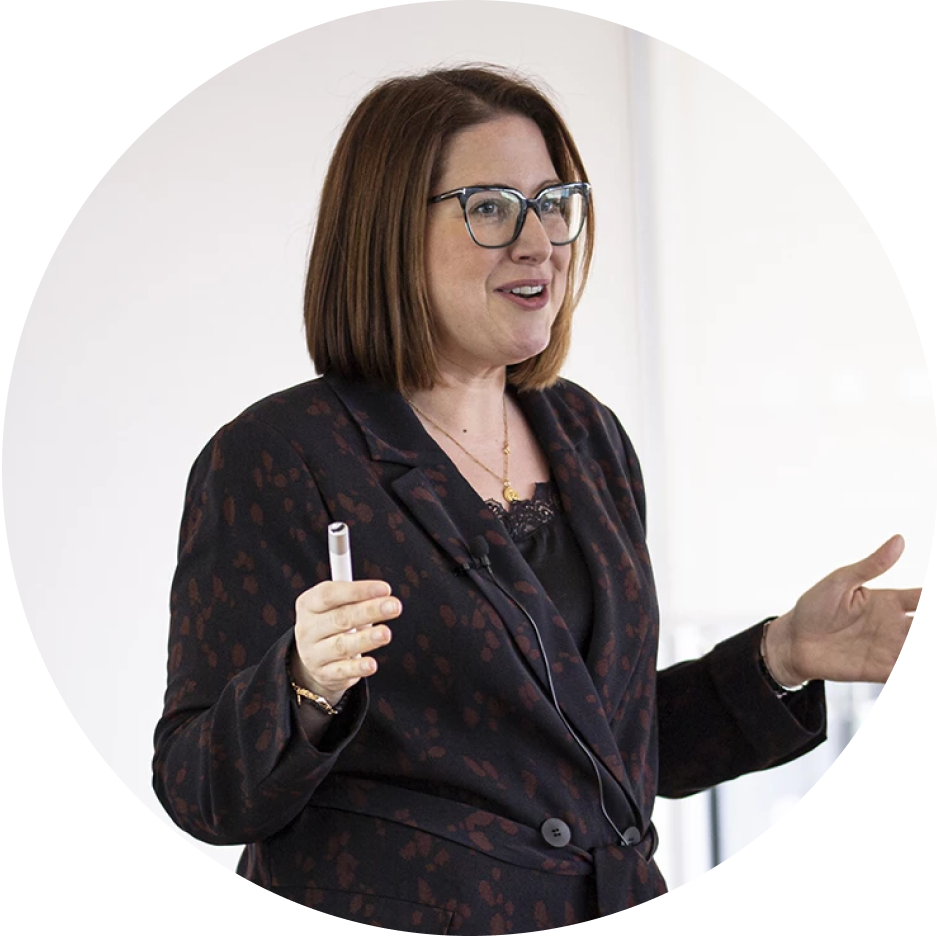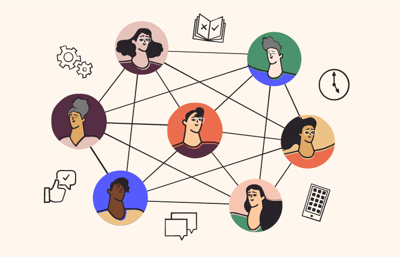Leaders are not parents - Consciously Lessons (Togetherness)

Transcript taken from the video above
Let's start by exploring some of the preconceptions we may have about leadership. Do either of these statements sound familiar?
'Leaders need to tell other people what to do.'
'Leaders need to solve other people's problems.'
Let's explore these statements in a little bit more detail. We've grown up in a world where the most senior or experienced figures in our lives were our parents or caregivers. And their role was to look after us. Teachers would've played a similar role. They were the governors of our performance and our learning and the leaders of our earlier lives.
The dynamics we experienced in our earlier years often unconsciously influence our interactions and relationships when we're older. Psychiatrist Eric Berne came up with the theory of transactional analysis as a way to explain how we interact with others, and the link to childhood. Berne talked about three ego states that drive our behaviour.
Firstly, parent. The attitudes, feelings and behaviours incorporated from parents or caregivers. In this state, adults act out what their parents would've said, felt and done. This parental state can be either nurturing or critical.
Secondly, there's adult. The ability to think and act, based on current experience. Normally, we're more rational, calm and considered in this state and don't feel extreme emotions. We're more likely to interact with another in a curious and empathetic way, rather than from a position of blame or point scoring.
Lastly, there's child. The state conjured up from feelings and experiences as a child. They may be good or not so good. You may not consider the states you adopt when dealing with others, and this is because, for the most part, our reactions and the way we behave, are largely subconscious.
It's useful to know about these states though, as it means we can choose to shift our state if we believe that a different one will serve us better. Both the parent and child ego states are rooted in the past, whereas the adult state is more concerned with what's going on in the moment. For this reason, it's more effective to remain in the adult state, especially as leaders needing to build effective relationships with the people around them.
Although you can't control someone else's ego state, you can recognise where you and the other person are and make a conscious effort to remain rooted in adult. This isn't always easy, as we can automatically react to another person's state and be triggered to react in a way that takes us out of adult. However, when we become more consciously aware this is happening, we can learn to adapt our responses.
Another area this parent/child relationship can surface is around the topic of flexibility. Flexibility, in all its forms, is becoming one of the most important benefits for employees. However, leaders can often struggle with the thought of giving people too much freedom for fear of losing control or people taking advantage. Again, this parent/child dynamic which lacks trust can damage wellbeing. Unfortunately, if employees are expected to come to work each day, leaving their home life neatly packed away in a box, it's unrealistic. Especially if we also expect those employees to commit to working hard and putting in discretionary effort when needed.
When we're trusted to be adults and to make decisions about how to manage our lives in a way that enables our performance, we tend to feel better about work and home. A research study carried out with 20,000 people by the University of Birmingham Business School found that when people have a greater level of autonomy over hours, workplace, type of work, or pace of work, their wellbeing was improved.
When we focus on outputs and not presenteeism, flexibility becomes so much easier to accept. And we end up having adult-to-adult relationships with the people in our teams. It plays out in our home lives and personal relationships too. When we act like the parent with other adults, it can backfire on us, even if we're well meaning. We can seem patronising or critical.
We can even compromise ourselves if we spend too much time in nurturing parent mode and bend over backwards to accommodate the needs of the other person, we try too hard to appease. So consider the role you play.
Who do you tend to behave more like a parent with? And who can you have good quality, equal and balanced conversations with, in more of an adult-to-adult and considered way?
Maybe think about the dynamics in each of those relationships and what makes them different.
 Natasha Wallace
Natasha Wallace


